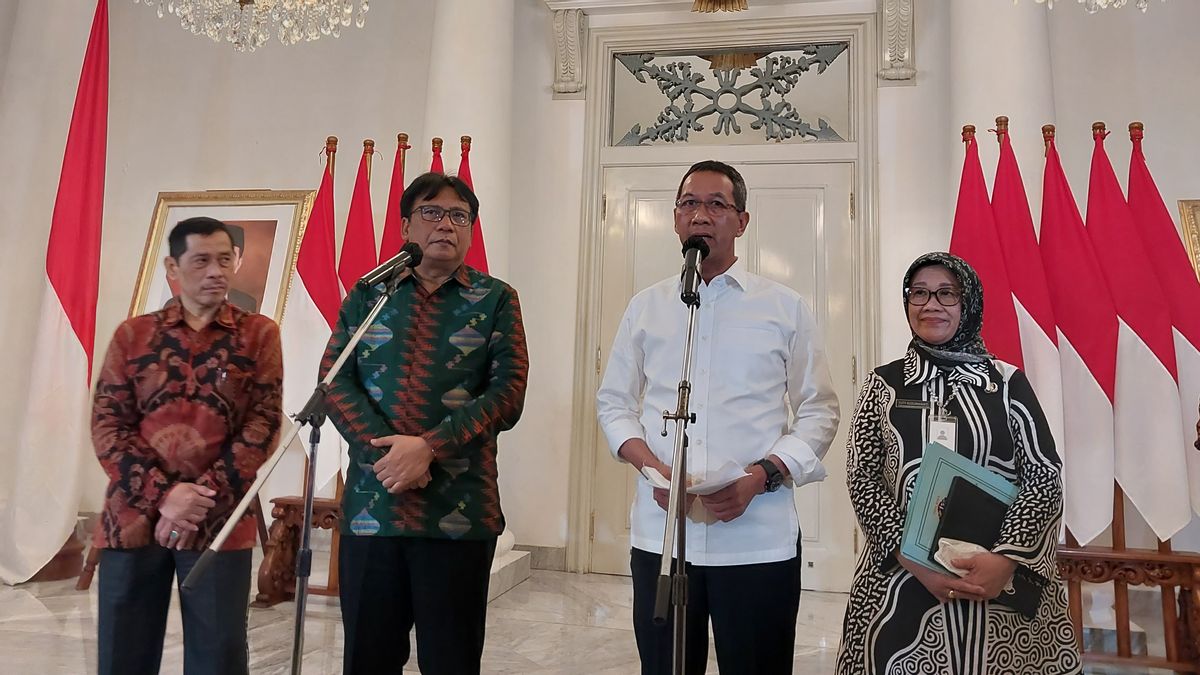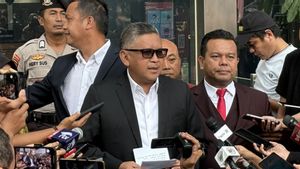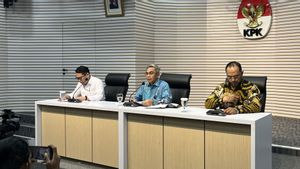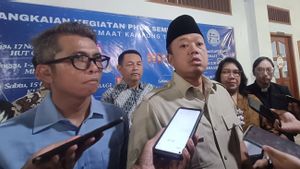Head of the Indonesian Central Statistics Agency (BPS) Margo Yuwono visited the DKI Jakarta City Hall to attend a meeting of the leadership of the DKI Provincial Government held by the Acting Governor of DKI Jakarta Heru Budi Hartono.
This meeting is a follow-up coordination between the DKI Provincial Government and BPS DKI Jakarta in synchronizing detailed population data for residents which fall into the category of poor and extreme poor.
Margo revealed that the synchronization of data between local governments and BPS was the first step.
The first area to carry out this data collection was DKI Jakarta during Heru Budi's leadership. Margo also said that the data collection mechanism they run would be an example for other regions.
"This is the first step we want to take so that DKI becomes a national prototype, how to synchronize data between BPS and local governments. Hopefully this will be an example of how we build good data management in Indonesia," said Margo at DKI Jakarta City Hall, Thursday, February 9.
Margo said that the data set owned by BPS was the result of socio-economic registration (regsosek) last year. Regsosek is the data collection of the entire population consisting of profiles, social conditions, economy, and welfare levels.
Meanwhile, the DKI Provincial Government holds a number of data ranging from integrated social welfare data (DTKS), data on social welfare service (PPKS), to data on the Carik Jakarta platform. Synchronization of this data will be used as a reference for other regions.
"If DKI is done, we will build governance, synchronize it, then we just need to replicate it to other areas. So, nationally we will have good governance. So, the government in formulating policies has used one Indonesian data," he explained.
Continuing, Heru Budi said that the DKI Provincial Government has provided the data they have to BPS to synchronize. The results of data synchronization in the form of a by name by address will be more accurate to the conditions in the field. This can be the basis for identifying residents with low welfare levels.
After that, the DKI Provincial Government will carry out interventions in providing assistance to residents who are included in the poverty alleviation target to reduce stunting rates.
"Later, this data is for the accuracy of the provision of social assistance targets, Smart Jakarta Cards, Healthy Jakarta Cards, basic necessities, nutrition assistance, drug administration, including having something to do with extreme poor people and stunting," said Heru.
Meanwhile, synchronization of this data is also a step for the DKI Provincial Government in following up on President Joko Widodo's instructions to eliminate extreme poverty in Indonesia and reduce stunting to 14 percent by 2024.
The English, Chinese, Japanese, Arabic, and French versions are automatically generated by the AI. So there may still be inaccuracies in translating, please always see Indonesian as our main language. (system supported by DigitalSiber.id)
Most Popular Tags
#Prabowo Subianto #New Year #pdip #Hasto Kristiyanto #nataru #NatalPopular
24 Desember 2024, 00:18
24 Desember 2024, 05:00
24 Desember 2024, 01:05













